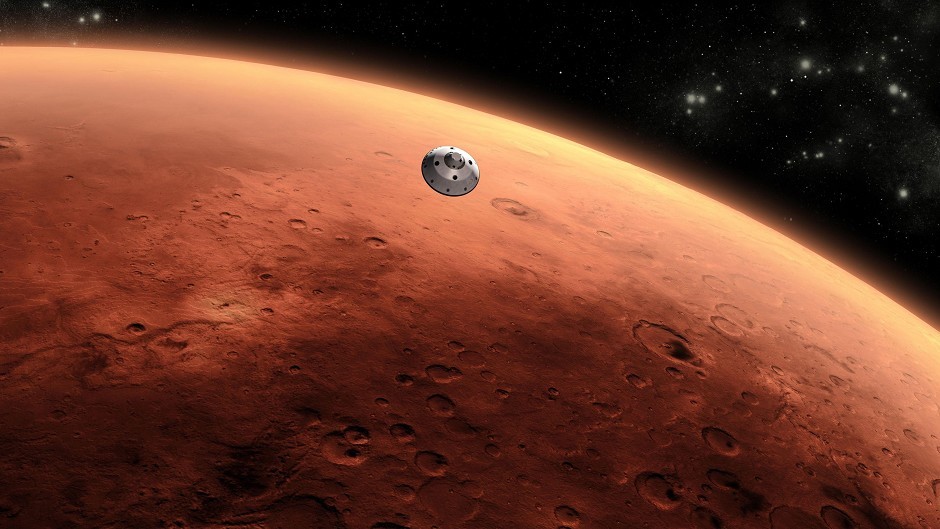Researchers in the north-east are a step closer to answering the question David Bowie famously posed more than 40 years ago.
Aberdeen University scientists have successfully managed to extract methane from Martian rock – which increases the likelihood that there actually is life on Mars.
The discovery was made as part of a joint research project between Aberdeen, the Scottish Universities Environmental Research Centre, Glasgow University and Brock and Western Ontario universities in Canada.
Scientists crushed samples of meteorites known to have come from the Red Planet, and found that six – made up of volcanic rock – contained the gas.
This means it is possible that the methane could be used as a food source by simple life beneath the planet’s surface, in the same way as it is on Earth.
Professor John Parnell, from the university’s School of Geosciences, directed the research.
He said: “One of the most exciting developments in the exploration of Mars has been the suggestion of methane in the Martian atmosphere.
“Recent and forthcoming missions by NASA and the European Space Agency respectively are looking at this, however, it is so far unclear where the methane comes from, and even whether it is really there.
“However, our research provides a strong indication that rocks on Mars contain a large reservoir of methane.
“This is significant because if simple life did exist below the surface, then it could use methane as a food source, in much the same way as microbes do in a range of environments on earth.
“So while we cannot say that this discovery is proof of the existence of life on Mars, it gives strong encouragement to continue looking for methane sources that could support life.”
Prof Parnell said the research had significance way beyond Mars.
“Methane is a starting point for complex organic molecules,” Our work implies that on many other rocky volcanic planets, in our galaxy and others, there may be methane, which could contribute to the building blocks of life.”
